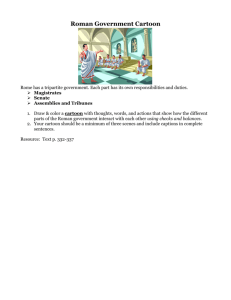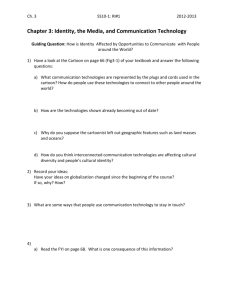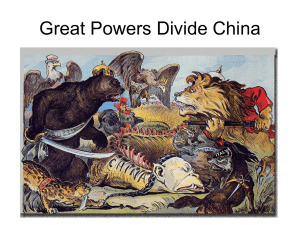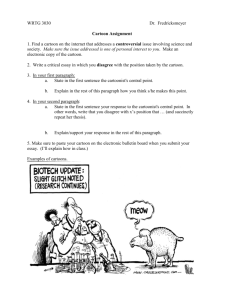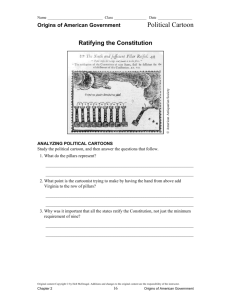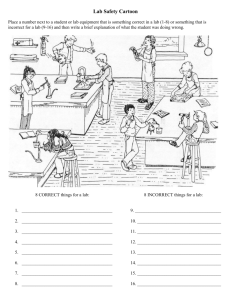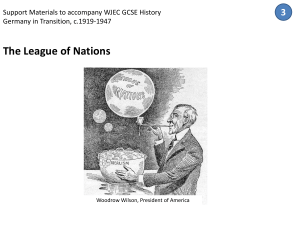HKCEE History Chapter 6
advertisement
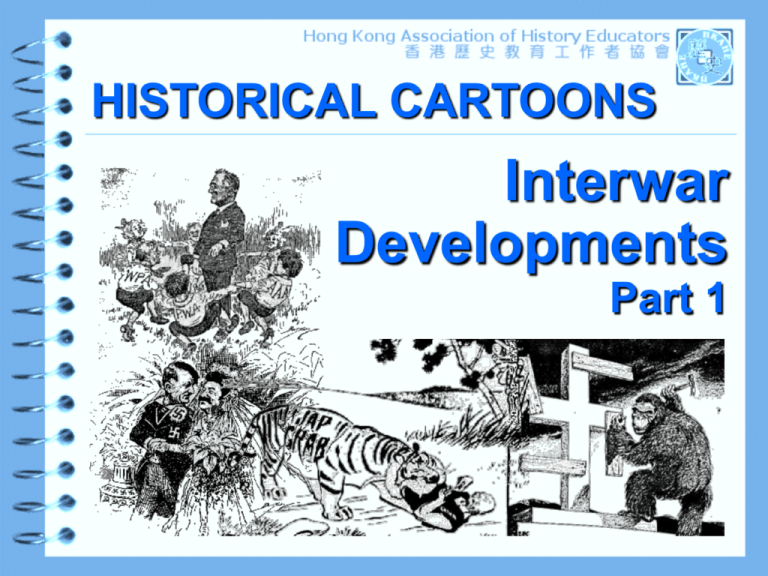
HISTORICAL CARTOONS Interwar Developments Part 1 Permanent Prosperity The USA had never before known the sustained prosperity that it experienced during the 1920s. A booming economy gave rise to the expectation that the good times would go on indefinitely. That expectation is conveyed in this cartoon by the American cartoonist, published in 1929 on the eve of the Great Depression. Finis While he was running for the office of President in 1928, President Hoover had promised the American people ‘a chicken in every pot’ and ‘a car in every garage.’ When the Great Depression set in the 1930 Hoover declared that ‘prosperity is around the corner’. Frankin Roosevelt, a Democrat, rejected Hoover and the policies of the Republican Party, sometimes referred to as the Grand Old Party. This cartoon was published in 1933, captures the popular perception of Hoover and the Republican policies as being outmoded and irrelevant. Power Struggle This cartoon is a German comment on the struggle for power after Lenin’s death. The tall figure is Trotsky who is being held back from taking power by Stalin, Kamenev and Zinoview. The Victim This cartoon was drawn by the British cartoonist and is a comment on the first Five Year Plan. It was published in Punch on 1933, the year the first plan ended and the second Plan began. The caption refers to the accusations of sabotage and machine wrecking which were made against workers who failed to achieve the levels of production set in the plan, or whose machinery broke down because of the pressure to produce more and more goods. So called saboteurs and wreckers were often shot. The Goose-Step The stiff legged marching style used by the German army was known as the goose-step. Thuis the British cartoonist chose to comment ton German actions in 1936 by adopting the nursery rhyme ‘Goosey Goosey Gander.’ This cartoon was published in Punch in 1936. This cartoon was published in Punch in 1935, describing Mussolini’s neglect of the League of Nations. “The League? Pah! The League is contemptible! The League can do nothing! “ Red Carpet Japanese World Power This cartoon is David Low’s view of Japanese foreign policy in Asia in the late 1930s. The Parting Guest This cartoon was published in Punch on 22 December 1937. An elegant and faintly cynical League of Nations bids a well-bred goodbye to an ill-mannered guest. A masked Mussolini, pockets bulging with pilfered silverware, slinks down the steps of the League’s headquarters in Geneva, carrying his loot. Parts 2 and 3 of this presentation will be continued on the coming IT resources CD or our web site. Teaching resources, such as AL teaching notes, worksheets, sample data-based questions and web resources, are available on our web site. Prepared by Hong Kong Association of History Educators http://home.hkcampus.net/~hkahe March 2001
